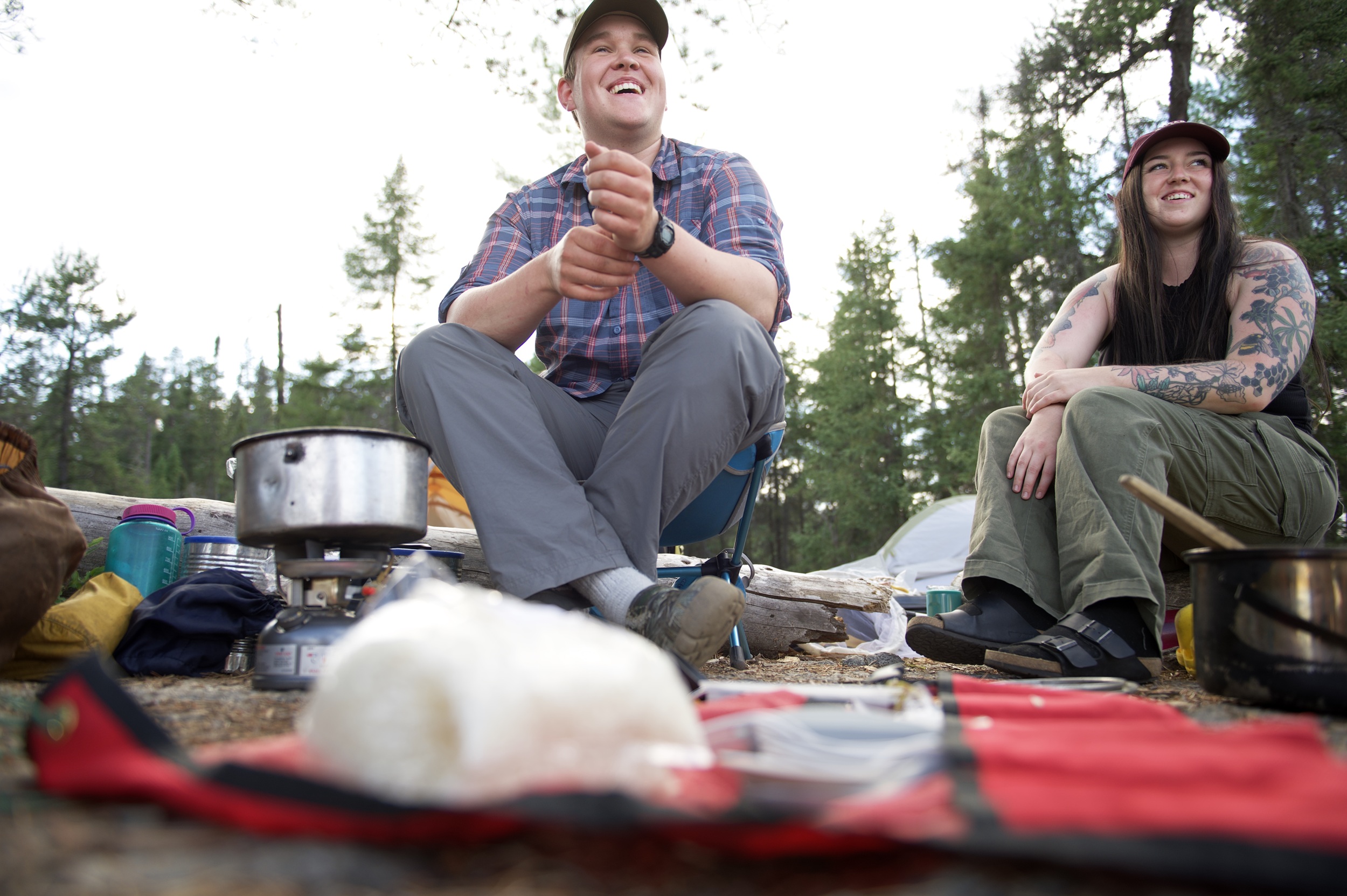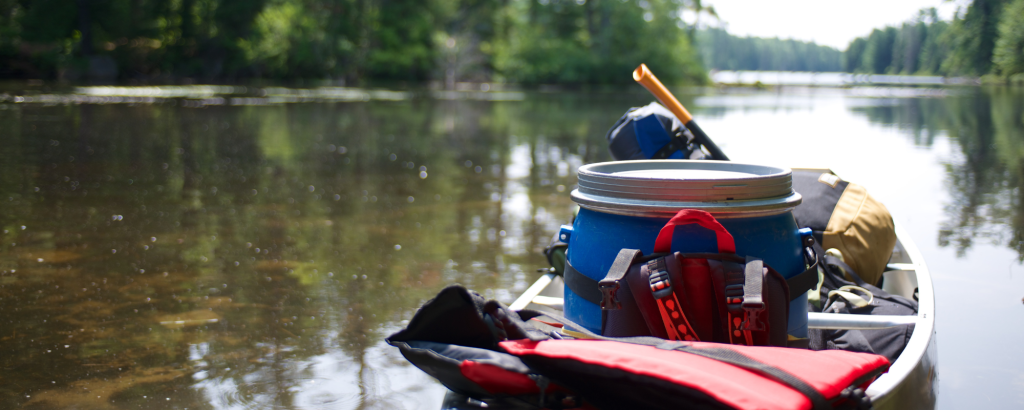
This post was written by David LeGros, a park naturalist at Ontario Parks.
One of the big draws to camping is the chance to get back to nature and experience the beauty it has to offer.
The sandy beaches, rocky shorelines, towering pines and singing birds really connect us to the place – we get to see nature behave naturally. Our part of the deal should to make as little impact on that landscape as possible.
There are a few common camping habits that are not good for the local landscape, or the planet in general.
Here are six park ranger tips for greener camping.
~
1. Avoid propane cylinders for camp stoves
Whether you are new to camping or a seasoned pro, a small, portable camp stove is a must. There are many varieties out there. If you’re in the market for a new one, avoid the kind that fueled by single-use propane cylinders.
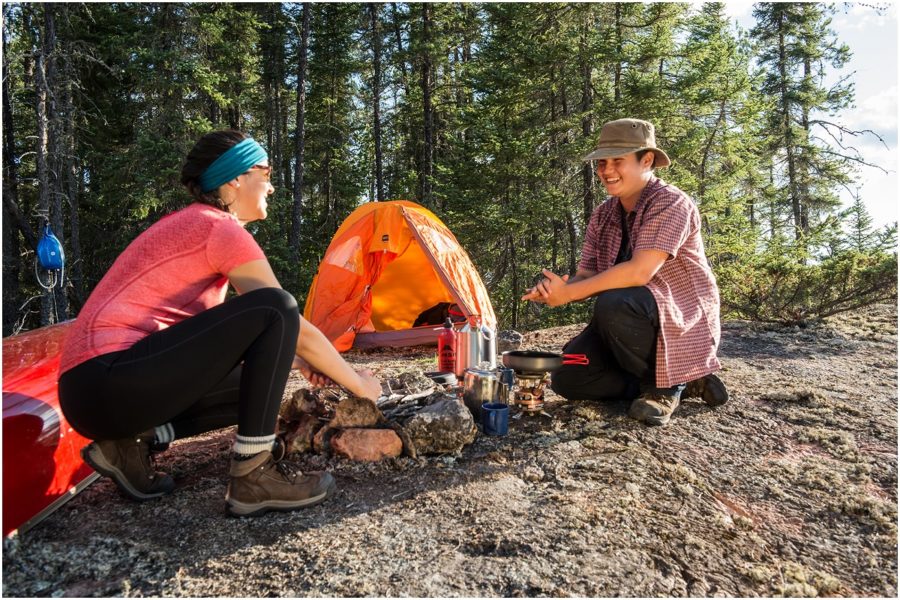
Single-use cylinders cannot go in regular garbage and cannot be recycled.
Every year, tens of thousands are put in hazardous waste sites. Whenever possible, use your campfire for cooking or get a stove that has a chamber to re-fill with white gas.
~
2. Bring reusable dishes and cutlery
You don’t use disposable dishes and cutlery at home, so why bring them camping? This type of garbage makes up a huge portion of waste in parks, and is largely unnecessary.
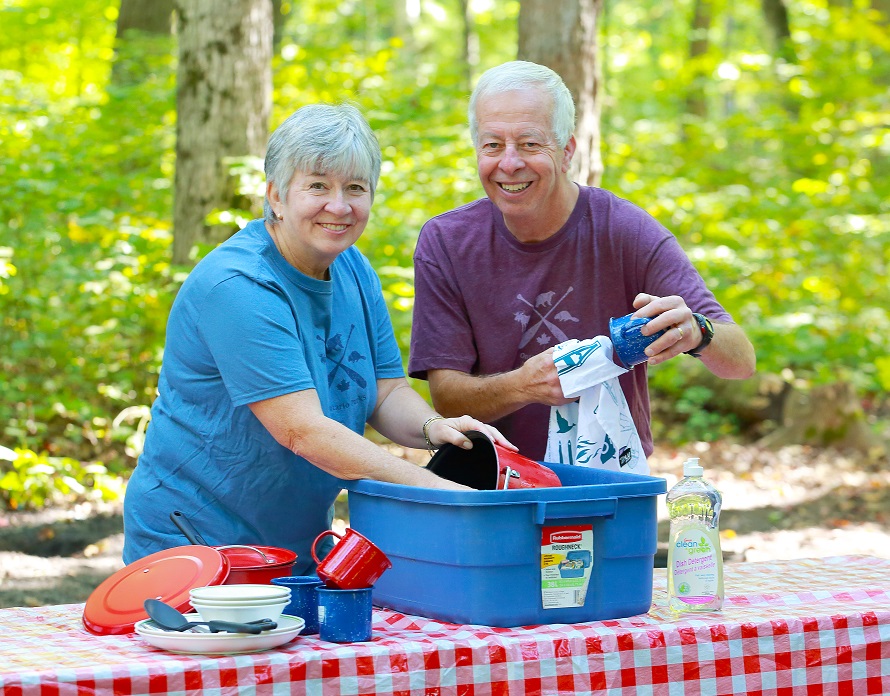
Remember that everything you throw out ends up somewhere. Bring plates and cutlery and just wash them in a small tub. Dump the dishwater into a vault toilet (outhouse) and never do the dishes in the lake!
~
3. Do not drive to the comfort station
Some campers like to drive to the comfort station first thing in the morning, and close to bedtime.
Our parks are home to many slow-moving animals (some are species at risk), and they are vulnerable to being killed by vehicles, especially at these times of day.
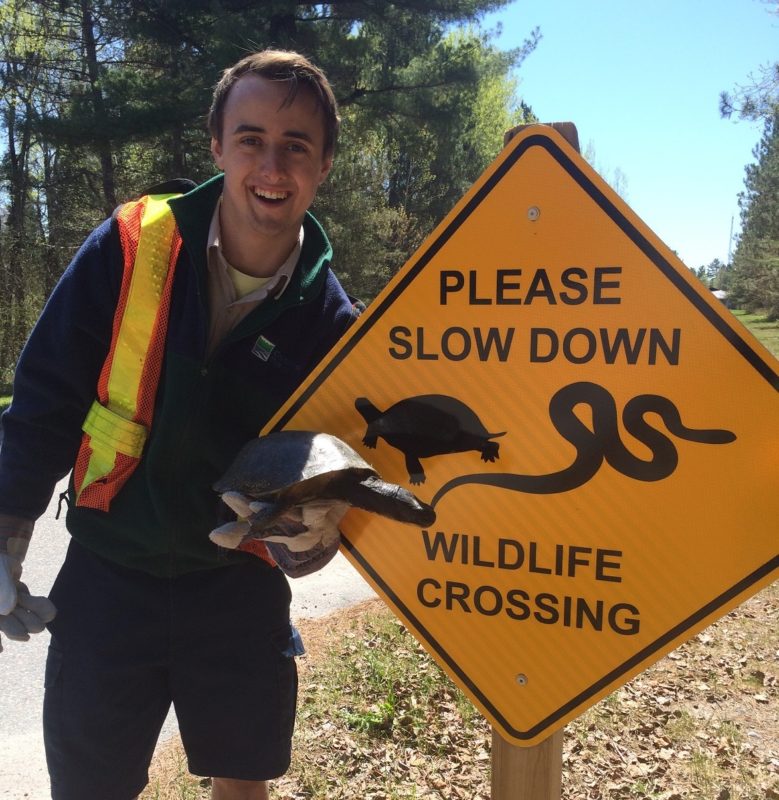
Also, driving – as we know – is a major contributor to greenhouse gas emissions. So whenever possible and within your personal mobility level, just walk.
Take that time to say hi to your neighbors, listen to the sounds of nature, or look for flora that you may not have seen before.
~
4. Never put nails in trees
In the event of rain, many people will put up a tarp for shelter. You can tie the tarp off to tree, but some people bring a hammer and nails, and drive them into the trees to fasten things.
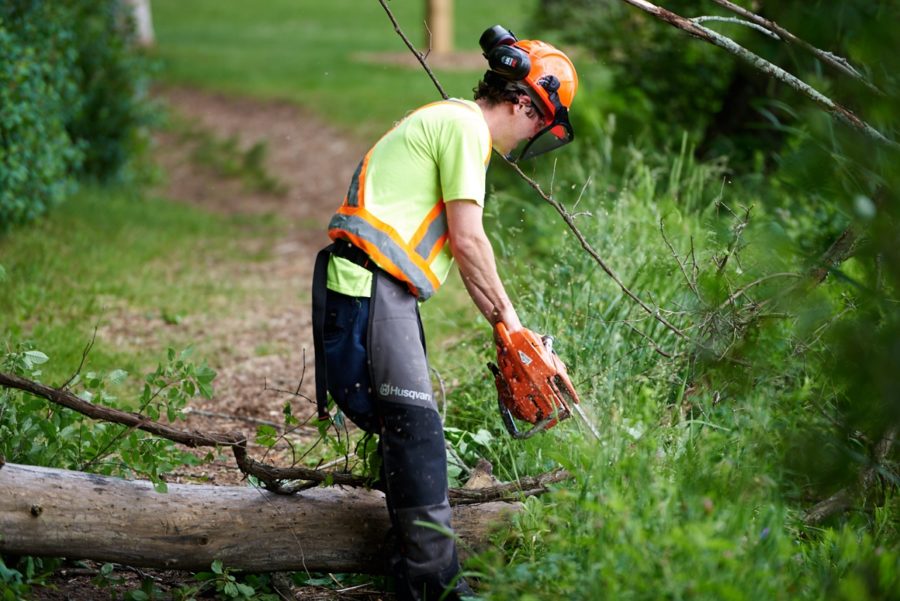
This creates a wound in the tree, and can weaken the tree, introduce disease, and cause it to become hazardous and need to be removed. Further, a tree full of nails is dangerous to the park ranger tasked with cutting it down.
Trees create shade, protection from weather, privacy and contribute to the “woodsy” feel of your campsite – so keep them healthy!
~
5. Sort your garbage
There are very few municipalities in Ontario where you do not need to sort your waste into recyclable fibres, containers and organics, thereby leaving behind only a little garbage.
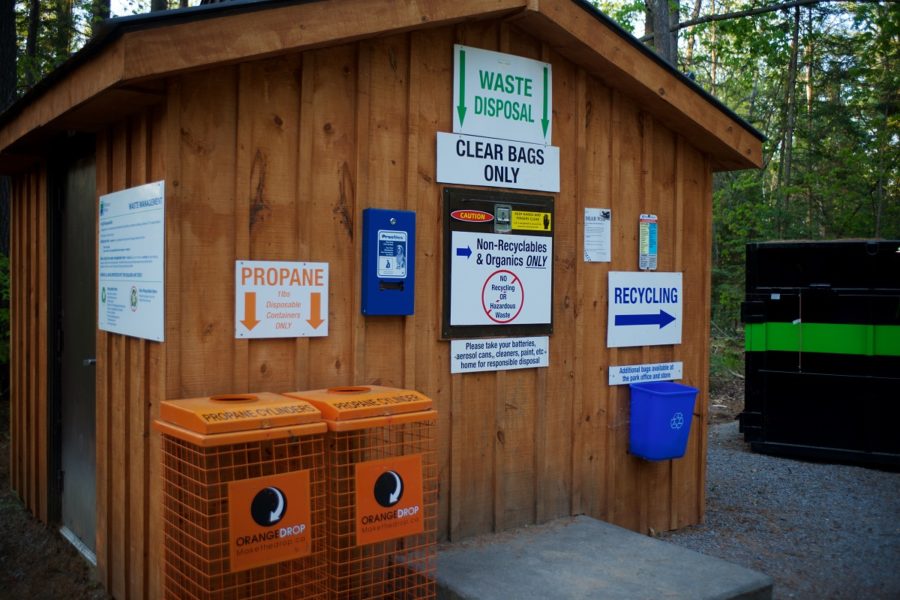
Most parks have a recycling program in place too. Organize your trash into waste, organics and recyclables at your site. Then, deposit everything in the right place at the campsite waste station. Recycling and composting: you do it at home, do it in the park! Bonus: try to make less garbage in the first place.
~
6. When nature calls, only the three Ps down the privy
Certainly, the privy is probably not anyone’s favorite part of a camping trip, but it is an important one. The vault privies (the ones that don’t flush) hold everything in a storage tank, which is regularly pumped out and disposed of.
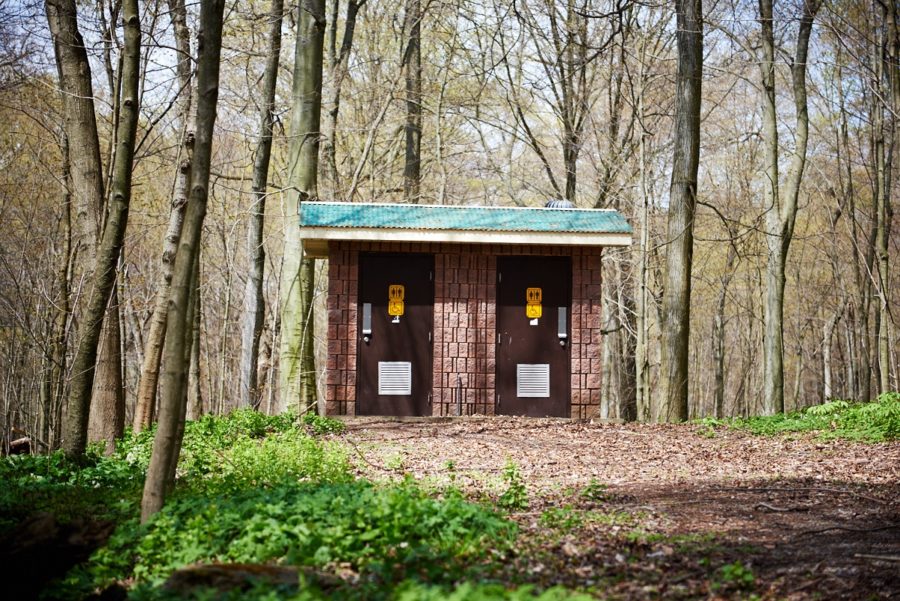
The tank, the collection truck and the disposal sites are all designed for the 3 Ps only (pee, poo and paper)! It is very frustrating and costly (not to mention stinky) to remove anything that isn’t one of the Ps.
Please do not put garbage in the privy or down the toilet!
~
Our parks are special places
Whether you are new to camping or have been visiting us for generations, we owe these places respect and reverence; after all, these are not disposable, single-use landscapes.
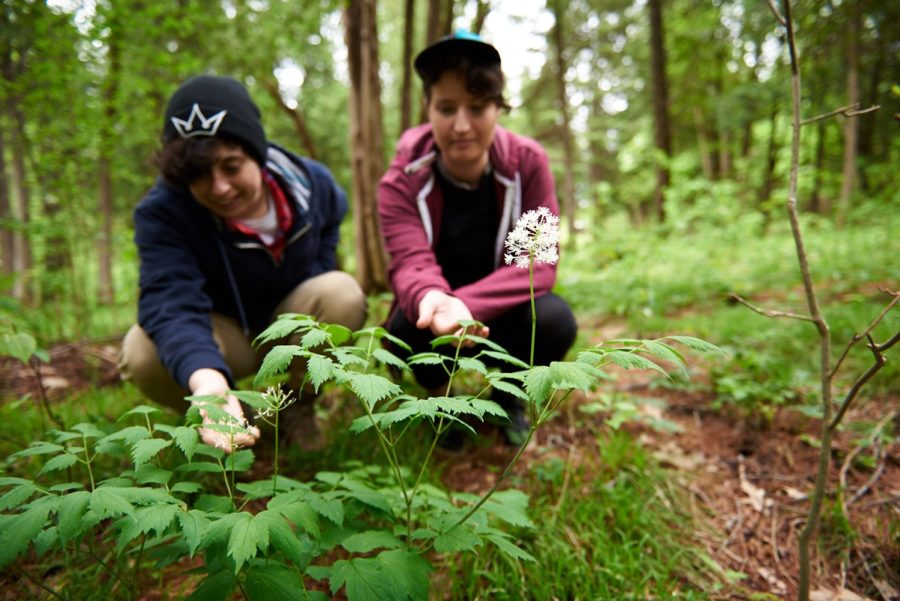
As you strive to be a good camper, Ontario Parks is working to be better stewards of the land too. We want to keep these places fun, safe and beautiful in perpetuity, but we need your help! See you this summer!


